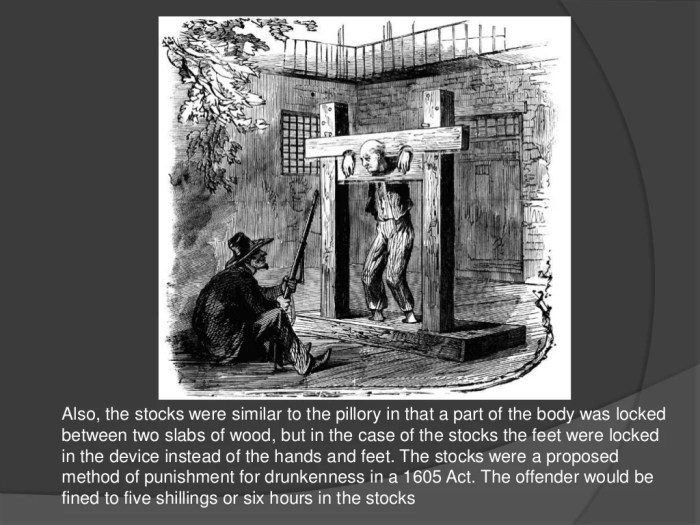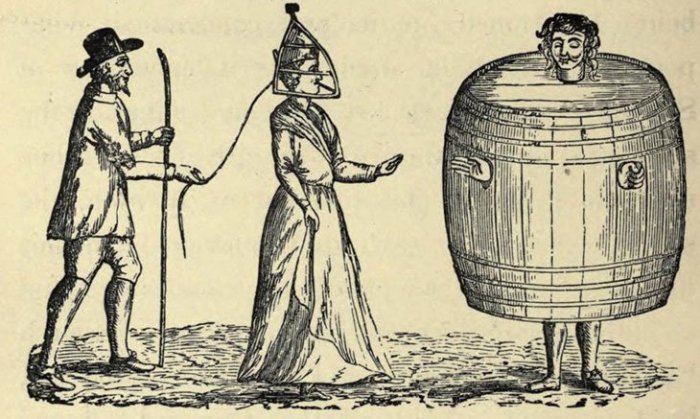Crime and punishment in Elizabethan times was a complex and multifaceted issue that shaped the lives of all Englishmen. This essay will explore the various types of crimes that were committed, the punishments that were meted out, and the social and economic factors that contributed to the high crime rate.
It will also examine the role that religion played in shaping attitudes towards crime and punishment.
The Elizabethan era was a time of great social and economic change. The population was growing rapidly, and the country was becoming increasingly urbanized. These changes led to a breakdown in traditional social structures and a rise in poverty and inequality.
As a result, crime rates soared. The most common crimes were theft, assault, and murder. However, more serious crimes, such as treason and heresy, were also relatively common.
Crime in Elizabethan Times

Crime was rampant in Elizabethan England, with a wide range of offenses being committed. Common crimes included theft, burglary, assault, and murder. The high crime rate was due to a number of factors, including the large number of unemployed and homeless people, the lack of a strong police force, and the harsh punishments that were often imposed for even minor offenses.
Law Enforcement
The primary responsibility for law enforcement in Elizabethan England fell to the local constables. Constables were unpaid volunteers who were responsible for maintaining order in their communities. They had the power to arrest criminals and bring them to justice, but they often lacked the resources and training to do so effectively.
Punishment
The punishments for crime in Elizabethan England were harsh. For example, thieves could be hanged for stealing as little as 5 shillings. Murderers were typically executed by hanging, drawing, and quartering. These punishments were designed to deter crime, but they often had the opposite effect.
The severity of the punishments made criminals more desperate, and it also led to a lack of respect for the law.
Punishment for Crime in Elizabethan Times: Crime And Punishment In Elizabethan Times

Types of Punishment
The punishments for crime in Elizabethan England varied depending on the severity of the offense. Minor offenses, such as theft, were typically punished with fines or imprisonment. More serious offenses, such as murder, were punished with death.
Rationale for Harsh Punishments
The harsh punishments that were often imposed for crime in Elizabethan England were based on the belief that crime was a sin against God. The punishments were designed to deter crime and to punish criminals for their sins.
Impact of Punishment on Crime Rates
The harsh punishments that were imposed for crime in Elizabethan England did not have a significant impact on crime rates. In fact, the crime rate actually increased during the Elizabethan era.
Social and Economic Causes of Crime
Poverty and Inequality
One of the major factors that contributed to crime in Elizabethan England was poverty. Many people were living in poverty, and they often resorted to crime in order to survive. Inequality was also a major problem, and the gap between the rich and the poor was growing wider.
Social Unrest
Social unrest was another major factor that contributed to crime in Elizabethan England. The Elizabethan era was a time of great change, and many people were feeling dislocated and alienated. This social unrest led to an increase in crime, as people turned to violence and theft as a way of expressing their frustration.
The Role of Religion in Crime and Punishment

Religious Beliefs, Crime and punishment in elizabethan times
Religion played a major role in shaping attitudes towards crime and punishment in Elizabethan England. The Elizabethan era was a time of religious turmoil, and the different religious groups had different views on crime and punishment.
Influence of Religious Beliefs on Laws and Punishments
The religious beliefs of the Elizabethan era had a significant influence on the laws and punishments that were imposed for crime. For example, the laws against heresy were very harsh, and those who were convicted of heresy could be burned at the stake.
Impact of Religious Reforms on Crime Rates
The religious reforms of the Elizabethan era had a significant impact on crime rates. The reforms led to a decline in the crime rate, as people became more religious and less likely to commit crimes.
The Impact of Crime on Elizabethan Society
Impact on Daily Lives
Crime had a significant impact on the daily lives of people in Elizabethan England. People were constantly afraid of being robbed or attacked, and they often had to take precautions to protect themselves.
Measures to Protect People from Crime
The Elizabethan government took a number of measures to protect people from crime. These measures included increasing the number of constables, creating a new police force, and establishing a system of watchmen.
User Queries
What were the most common crimes committed in Elizabethan times?
The most common crimes committed in Elizabethan times were theft, assault, and murder.
What were the punishments for crime in Elizabethan times?
The punishments for crime in Elizabethan times were harsh and unforgiving. They included public whippings, branding, mutilation, and execution.
What were the social and economic factors that contributed to the high crime rate in Elizabethan times?
The social and economic factors that contributed to the high crime rate in Elizabethan times included poverty, inequality, and social unrest.